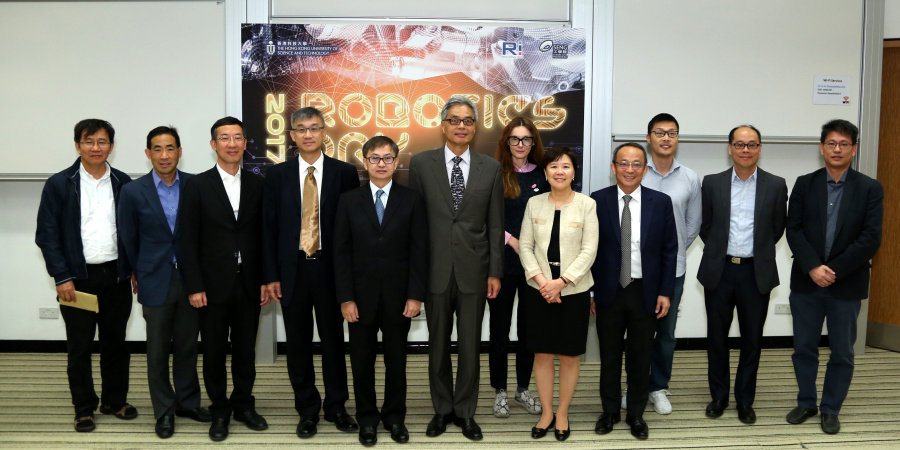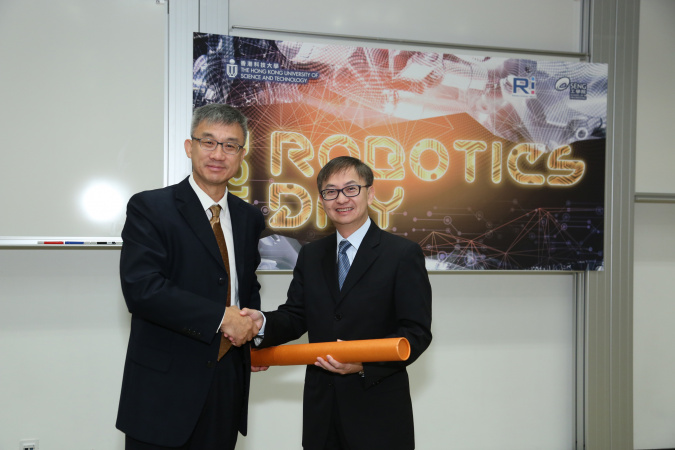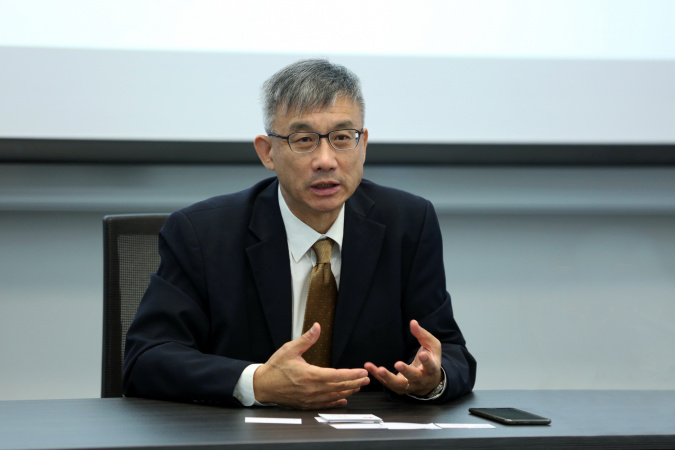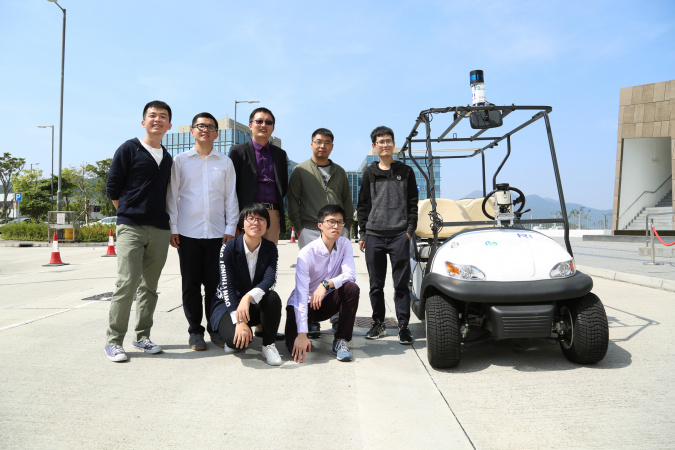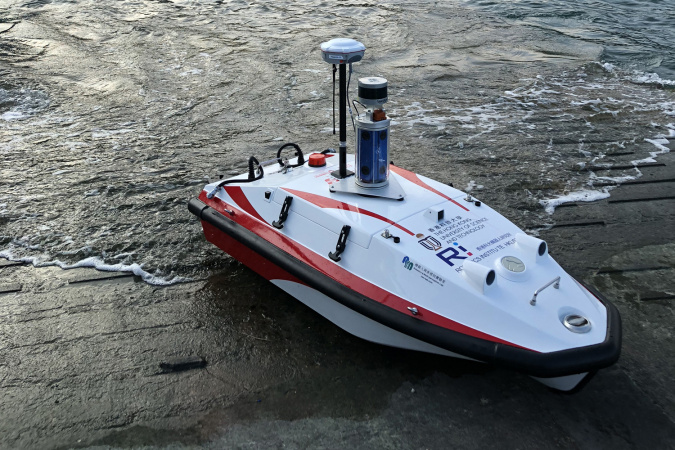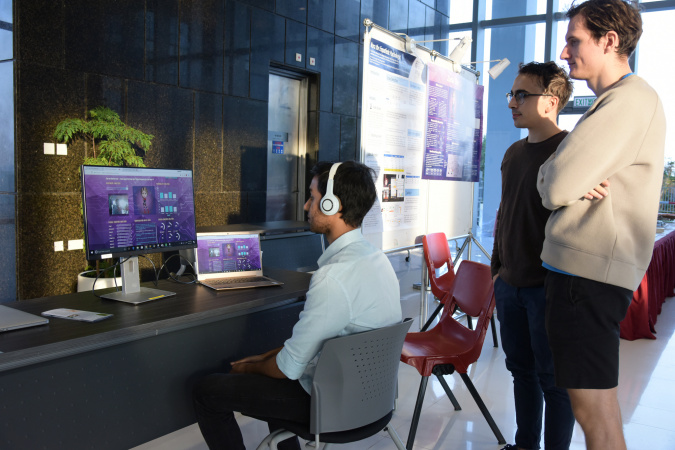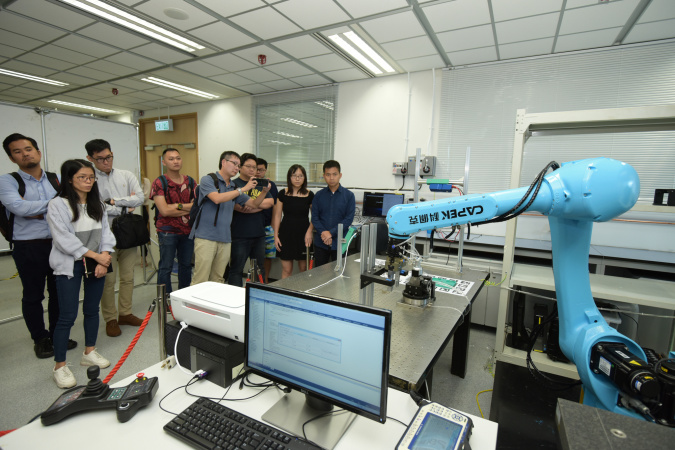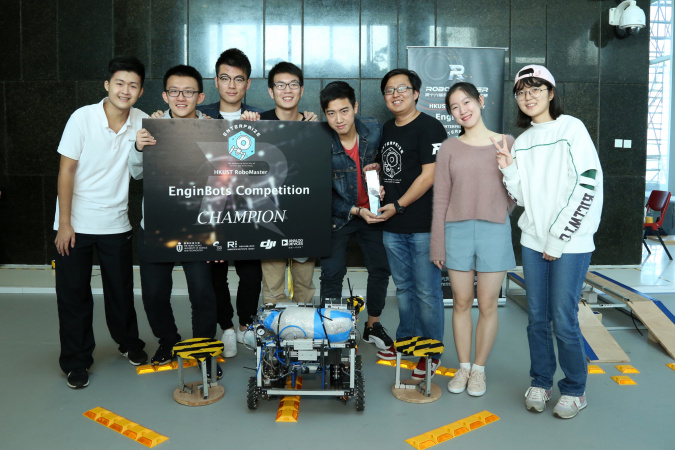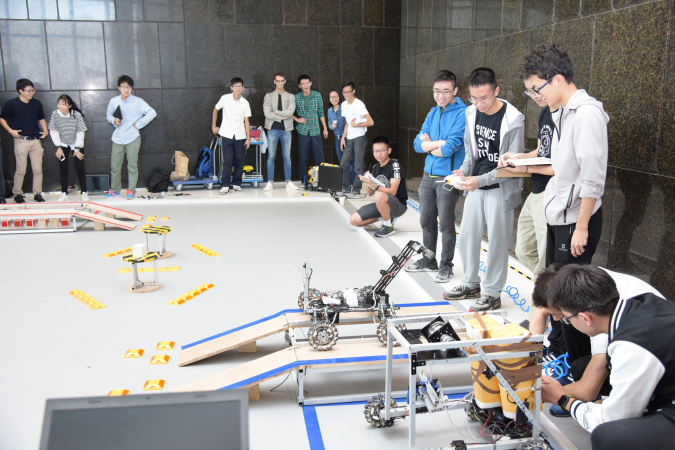HKUST Successfully Develops Hong Kong’s First Unmanned Car
The faculty and students at the Robotics Institute of the Hong Kong University of Science and Technology (HKUST) have developed Hong Kong’s first unmanned car with a host of innovative functions, including the ability to avoid obstacles as it travels on its planned route.
The team, led by Prof Ming LIU, Assistant Professor in the Department of Electronic and Computer Engineering, developed an advanced unmanned passenger vehicle system comprising multiple subsystems, ranging from the sensor systems to the dynamic modeling. A custom-made control bus enables the centralized control of all of the car’s mobility functions, including wire-driven steering, acceleration, and brakes.
The perception of the obstacles is achieved by LiDAR (laser range finders), which can measure the surroundings 100 times per second. The three-dimensional perception system generates over 100,000 points per second, indicating the pose of the vehicle to the surroundings.
“We believe this is the starting point for a new generation of unmanned vehicles that saves manpower on the one hand, and enhances safety, on the other,” Prof Liu said.
This invention was one of the projects showcased on the HKUST Robotics Day today. The other projects included an autonomous drone and an autonomous boat, both of which utilize similarly advanced navigation systems. They also include smart manufacturing production lines, a robotic chess player, as well as virtual personalities that can analyze the user’s emotions and personality and even conduct therapy.
Addressing the event today, the Under Secretary for Innovation and Technology, Dr David CHUNG, said that Hong Kong’s robotics sector is achieving successes not simply in industrial robotics, but also in hi-tech areas such as animatronics and artificial intelligence, with companies focused on healthcare, safety and disaster management. The Government has identified eight key initiatives including increasing R&D expenditure and nurturing talents in order to promote innovation and technology development. Together with the technological research infrastructure projects and Hong Kong-Shenzhen Innovation and Technology Park at the Lok Ma Chau Loop in the pipeline, he is confident that Hong Kong will make a difference.
Prof Michael WANG, Director of the HKUST Robotics Institute, said, “The biggest challenge in Hong Kong for robotics development at present is the availability of critical mass and skills to tackle the key problems – in the areas of external funding, facilities, and industry involvement. We at the Robotics Institute have made a very promising start, and we look forward to continued support from the Government and the private sector.”
The Robotics Institute is a multidisciplinary platform for integrating, facilitating and enabling university-wide programs in robotics-related research, development and education. Its research thrusts are Autonomous Systems and Robots, Manufacturing Automation and Smart Factory, Human-Robot Interaction, and Smart Home and Smart Infrastructure.
Related link:

